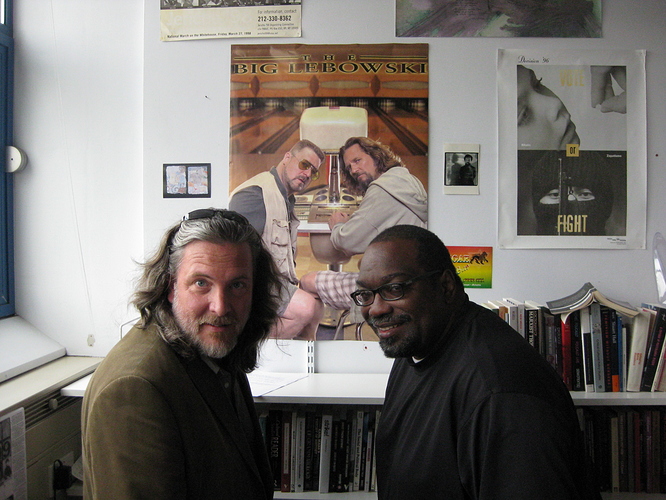Stefano Harney and Fred Moten published their coauthored book The Undercommons: Fugitive Planning & Black Study in 2013. It would go on to become highly influential in the sphere where radical theory and radical struggle meet. The book has now received a long-awaited translation into Spanish by Cristina Rivera Garza, Marta Malo, and Juan Pablo, and will be published by Cooperativa Cráter Invertido and La Campechana Mental. At The New Inquiry, Harney and Moten engage in a conversation with the translators about the legacy of the book and the significance of its appearance in Spanish. Here’s an excerpt:
Writing alone, by and as oneself, leads to brokenness. Writing together can generate incompleteness. We live with brokenness, but we can also live with incompleteness, a shared brokenness, an open wholeness, that generates potentialities that go past the point of the unseemly for those who impose normativity and even for those who desire norms that will have moved against the grain of such imposition. To take up a special case, we often hear that the university discourages writing together, and rewards writing alone. We have ourselves said this, and it is true. But truer is the fact that we don’t want to write together. We are the first guardians of our posited individual contribution. This policing of our own borders of body and mind—even in light of the history of their violation, often without cognizance of their imposition—cannot but reduce us, separate us from what surrounds and infuses and projects us, and bind us in and to what and how we sclerotically gather under the governing and governance of the individual. Because we cannot bear alone the burden of the loneliness we choose, always in some way we injure one another, inured, as we are, to the fiction of one another, and to the impossibility of one’s completeness, which ongoing injury to the other is supposed to achieve. On the one hand, intersubjectivity can only break what it purports to make; on the other hand, in claiming brokenness we make intersubjectivity disappear. So, we should write together to incomplete each other. It may not cure our brokenness, but that is only because we are incurable, or to put it another way, our cura, our care, can never be of the self, but only of that touch, that rub, that press, that kinky tangle of our incomplete sharing.
Image of Stefano Harney and Fred Moten via the Poetry Project.
